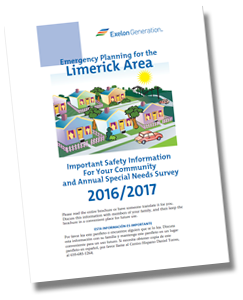Your house number is very important. If you have an emergency, that is the first thing you will be asked: WHERE is your emergency?
Where you put your house number is also very important as it must indicate which house it is, especially on roads where the mail is delivered on one side only. Please make sure that your house number clearly indicates which house that it belongs to. Placing the number at your driveway is a good way to identify your home. Remember that emergency personnel need to see your number in foggy and rainy weather as well as on a clear day.
Use reflective, Arabic numbers a minimum of 3 inches in height.
Mount in a secure fashion to the principal building’s front wall, porch or other fixed appurtenance in front of the building in the general vicinity of the main entry way or main path of travel which leads to the main entrance from a street or upon a post or mailbox in the front yard of the premises.
If mounted on a post, the post must be no more than 6 feet above the road grade.
Numbers must be significantly legible as to contrasting background, arrangement, spacing, size and uniformity.
No trees shrubs or obstructions should block the line of sight of the numbers from the center of the street.
Numbers should be visible from both directions of travel on the street.
Charlestown has an Emergency Operations Plan (EOP) that is designed to provide prompt and effective emergency response procedures to be followed in the event of a major emergency or disaster to protect the health, safety and welfare of Charlestown residents.
The Charlestown Township Emergency Management Coordinator is appointed by the governor of Pennsylvania and acts on behalf of the Board of Supervisors. All municipalities are required to have a coordinator. The Emergency Operations Center consists of computers, communications and other equipment to be used in the event of an emergency that might affect the residents of the township.
Examples of these emergencies include: flooding, storms, tornados, hazardous materials accidents, and nuclear plant incidents. The volunteers take part in various training activities hosted by Exelon and the Chester County Emergency Management department, and participate in practice drills. Charlestown has eleven volunteer members of its EOC, and we welcome your involvement. Please consider joining us!
Charlestown Township
Emergency Management Coordinator
manager@charlestown.pa.us
(610) 240-0326
Philadelphia Electric Company (PECO), a member of Exelon Corporation, maintains a nuclear power generating plant within ten miles of Charlestown Township. Exelon has provided safety information for area residents in the form of an extensive brochure which is updated yearly.

A guide to area emergency services with exit routes and helpful safety information.
– from the Chester County Department of Emergency Services
Occasionally, usually during severe storms with wide-spread power outages, more 9-1-1 calls are made than can be answered. During these times, after a few rings the caller will receive a recorded message letting the caller know that they have dialed 9-1-1 and all telecommunicators are busy. The recording will instruct the caller to stay on the line, except if they are calling to report a power outage. If this is the case, the caller will be instructed to call their electric provider.
Even during these busy times, callers should not hang up once they have dialed 9-1-1. Even with a hang up, we still receive your phone information, and have to call back and verify that you do not need assistance; this COULD DELAY HELP FOR SOMEONE ELSE WHO NEEDS IT.
If you dial 9-1-1 by error, simply let the call-taker know when they answer the call. The call-taker may ask some questions to verify that the call was dialed in error and that you truly do not need help.
If you have questions about calling 9-1-1, feel free to contact us at 610-344-5000 and ask to speak with someone in the 9-1-1 Operations Division or Public Information Officer.
– from Patty Mains, Chester County Department of Emergency Services
The Chester County Health Department has provided safety tips for food safety for when the power has been restored to residents in Chester County.
When power is restored you will need to determine the safety of your food. Here’s how:
Keep in mind that perishable food such as meat, poultry, seafood, milk, and eggs that are not kept adequately refrigerated or frozen may cause illness if consumed, even when they are thoroughly cooked.
When power goes out, water purification systems may not be functioning fully. Safe water for drinking, cooking, and personal hygiene includes bottled, boiled, or treated water. Here are some general rules concerning safe water:
For more information: www.chesco.org/224/Health
Contact:
Patty Mains
Chester County EOC
(610) 344-4779
Eoc-pio@chesco.org